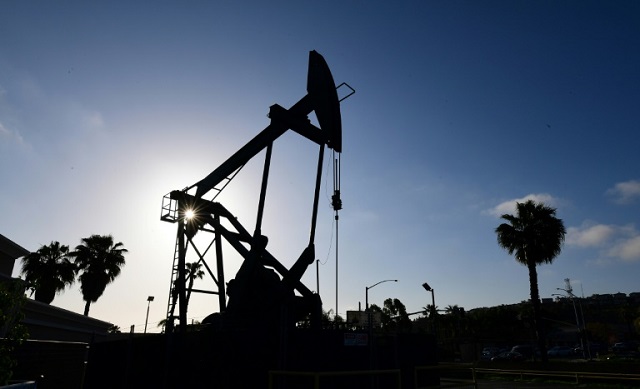
Delays and shattered hopes: Uganda still waiting for oil riches
BULIISA, Uganda | AFP | It was the promise of oil — billions of barrels of black gold, discovered locked beneath Lake Albert — and the riches to follow that brought electricity to Buliisa.
Roads, piped water, and other unthinkable luxuries came next, as the poor farming village on the great lake’s northern shores transformed into a booming frontier town, and Uganda braced for newfound prosperity as an African oil giant.
But those fortunes never transpired.
The wells were never dug at Buliisa, the refineries never built and taps never turned.
Fourteen years after the discovery of sub-Saharan Africa’s fourth-largest oil reserves, not a drop has been extracted.
Bureaucratic delays and contract disputes have ground progress to a halt.
And allegations of environmental damage and human rights abuses surrounding the oil fields have raised questions about resource exploration in one of Africa’s great wildernesses.
“The beginning was bad, and we foresee that the oil will come, and make matters worse,” said Mpangire Blasio Korokoni, who was evicted from his land at Kasenyi, a village near Buliisa, to make way for the oil project.
But Uganda is not giving up on its oil dreams, and the country is still banking on production starting by 2023.
– High hopes –
The discovery at Lake Albert in 2006 sparked high hopes in Uganda, where one in five of the country’s 42 million people live in abject poverty.
Beneath the lake waters fed by the White Nile are an estimated 6.5 billion barrels of crude, about 1.4 billion of which were extractable.
The reserves are expected to last up to 30 years, with production peaking at 230,000 barrels a day.
The government forecasts earnings of $1.5 billion a year, a windfall that could have driven GDP per capita from $630 a year to more than $1,000.
However plans to tap the oil at Lake Albert, a vast, 160-kilometre (99-mile) long body of water separating Uganda from the Democratic Republic of Congo, have yet to materialise.
The planned projects are co-managed by French oil company Total, British outfit Tullow and China’s CNOOC.
But optimism ebbed as the ambitious projects ran again and again into obstacles and, almost a decade and at least $3 billion later, progress has ground to a halt.
“When you discover reserves, you hope to start production seven to 10 years later,” says Pierre Jessua, managing director of E&P Total Uganda, a subsidiary of Total.
“So we have encountered a number of delays.”
Uganda has been slow to acquire technical expertise and legislate the necessary regulations.
Initially it said it would build a pipeline through Kenya, before changing its mind and deciding on a 1,443-km pipeline from Uganda to the Tanzanian port of Tanga for export.
Most recently, in August, Tullow abandoned plans to sell part of its stake in the fields and projects to CNOOC and Total due to a tax dispute with the Ugandan government.
“A lot of preparatory work has been done. The projects are technically ready. But some of the commercial negotiations are still ongoing,” said Gloria Sebikari, an official of the Uganda Petroleum Authority.
“But we remain hopeful.”
Uganda is now aiming for the remaining hurdles to be resolved allowing for the crucial Final Investment Decision (FID) to be struck with partners this year, paving the way for production to start by 2023.
“There’s a real desire, a real commitment on both sides. I’m quite optimistic that these discussions will be fruitful,” Jessua, of Total, said.
“Now, on the timetable, I think we have to be cautious,” he added however.
Uganda is relying on oil revenue to repay state debt that stood equivalent to 42 percent of GDP in 2018 — a share that could rise to 50 percent of GDP by early 2021.
– Living in fear –
The oil projects have proven controversial beyond the boardroom.
Some 7,000 people were forced from their land in 2012 in Kabaale, about 150 km south of Buliisa, to make way for a refinery and international airport related to one of the projects.
The airport is the only site where construction has begun and is due for completion in 2023.
Some of those expelled opted for land in return, but waited six years for lots they still don’t have title deeds for.
“We don’t own this land legally,” said Innocent Tumwebaze, 30, one of those dispossessed.
“We are cultivating it, but with that fear. Because at any time, you don’t know what could happen.”
Total and its subcontractor Atacama Consulting have been accused by civil rights groups of making late or below-value compensation payments to 600 people who were tossed from their homes around Kasenyi, where the company plans to build a plant for processing crude.
Total denies the allegations, saying it is “limiting relocations and providing support to those concerned”.
Six Ugandan and French non-governmental organisations have filed a lawsuit in France against Total, accusing it of not undertaking a “duty of vigilance” when considering the impact on local people.
A court near Paris declared on January 30 that it could not try the case, referring it instead to a commercial tribunal.
 The Independent Uganda: You get the Truth we Pay the Price
The Independent Uganda: You get the Truth we Pay the Price



